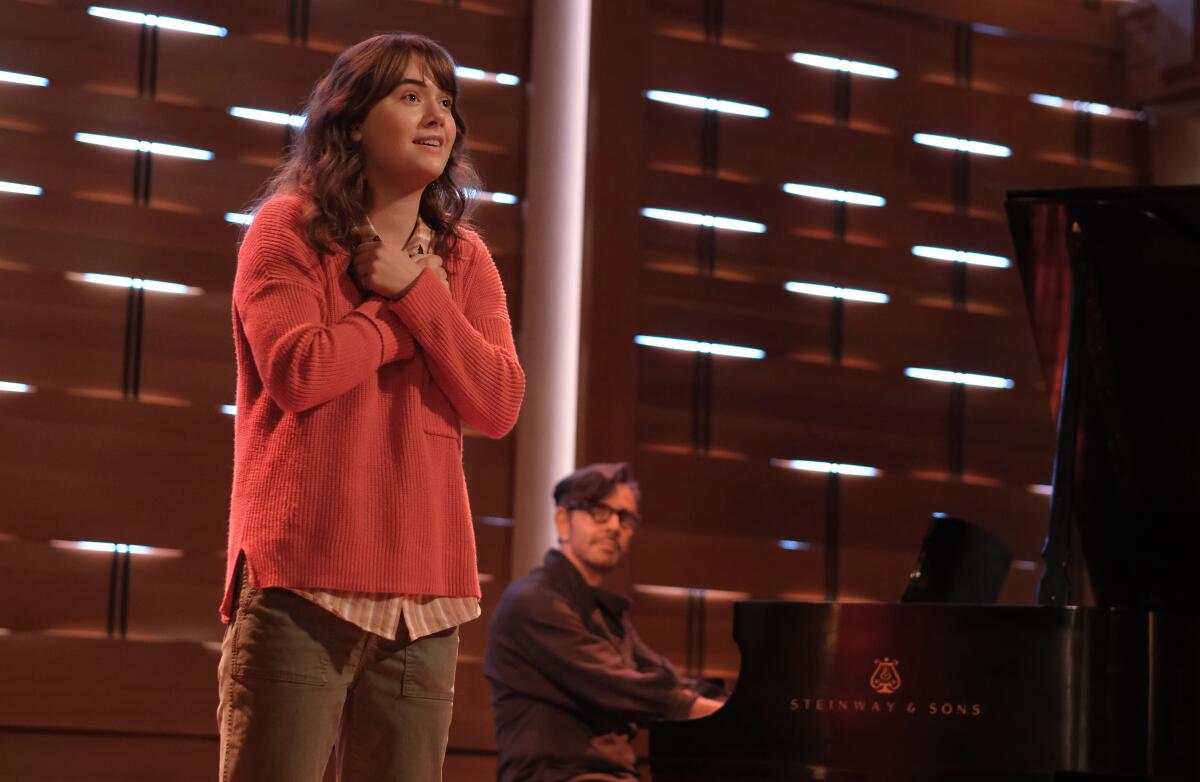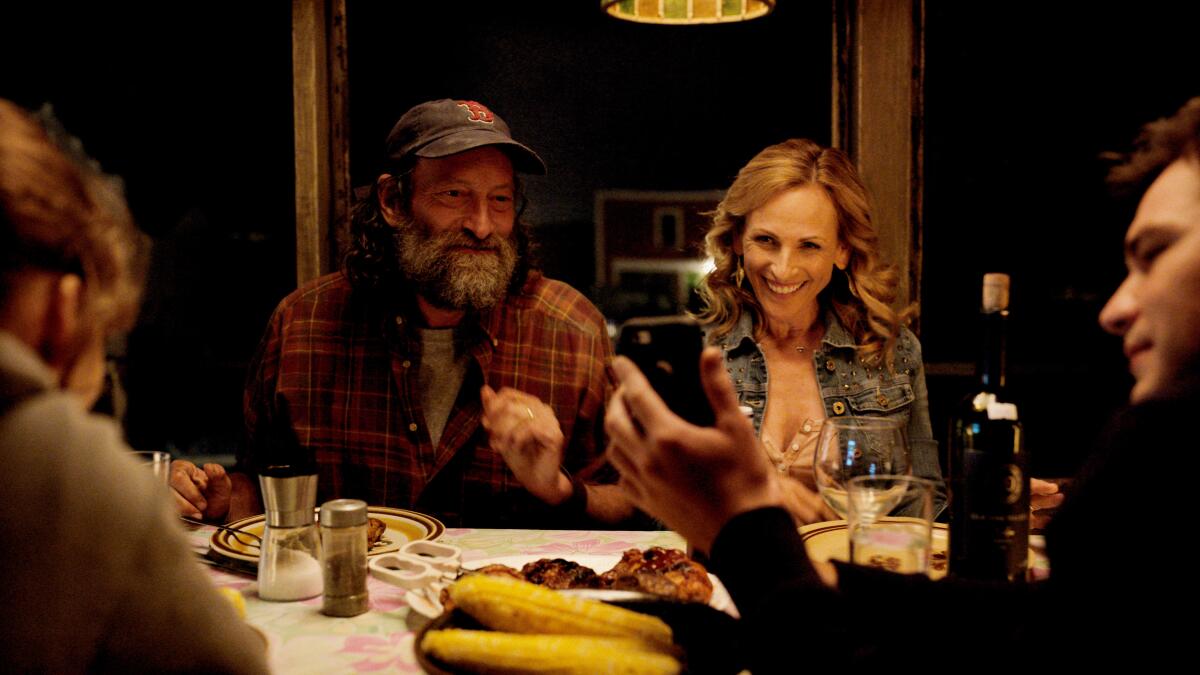What’s next for ‘CODA’? What we know about the stage musical in the works

- Share via
Can Deaf West Theatre’s artistic director, DJ Kurs, imagine Troy Kotsur reprising his Academy Award-winning role in the film “CODA” on Broadway?
“Yes, please! He’s been in four musicals and he brings so much life to the stage,” writes Kurs in an email interview about Deaf West’s recently announced plans to develop the film, which won best picture at the Oscars on Sunday, into a stage musical in a collaboration with the two of the movies’ producers, Vendôme Pictures and Pathé Films.
“Daniel [Durant] and Marlee [Matlin] also starred in ‘Spring Awakening,’ so they’re no spring chickens either. Let’s get them all into the rehearsal room already,” Kurs writes.

“Spring Awakening” is Deaf West’s take on a 19th-century German play by Frank Wedekind, which opened at L.A.’s Inner-City Arts in 2014 and transferred to Broadway the following year, garnering three Tony nominations, including a nod for best musical revival. It was the second Deaf West production to make it to Broadway, after the company’s 2003 rendition of “Big River,” which was also nominated for three Tony Awards.
Both Durant and Matlin star alongside Kotsur in “CODA,” an acronym for “child of deaf adults.” Kotsur plays salty family patriarch Frank Rossi, and Matlin, his fiercely iconoclastic wife, Jackie. Durant plays Frank’s hardworking son, Leo, who wants to transform the family fishing business, while his hearing sister, Ruby (Emilia Jones), discovers her innate gift for singing and focuses on scoring a scholarship to Berklee College of Music.

The film, written and directed by Sian Heder and adapted from the 2014 French-language film “La Famille Bélier,” premiered at the 2021 Sundance Film Festival. Apple acquired distribution rights and released it in theaters and on its Apple TV+ streaming service in August 2021.
Kurs says Deaf West had its eyes on the “CODA” material long before the film’s massive success. “I think my light-bulb moment happened when I read an early draft of the script. I knew that this would be a natural fit for the art form of musical theater,” writes Kurs. “The significance of the project has increased by several levels of magnitude since the film came out and all of its successes reinforce that initial impression.”
Prior to the film’s Sundance premiere, Heder made an email introduction between Deaf West and Vendôme producers Philippe Rousselet and Fabrice Gianfermi, writes Kurs.
“I had some conversations with Sian and the cast before the movie was made,” writes Kurs. “The worlds that we travel in are so small and we had been anticipating this movie for some time.”
Deaf West, an L.A.-based nonprofit founded in 1991, has become one of the country’s most prominent theater companies featuring Deaf actors and storytelling. Its productions often feature both Deaf and hearing performers, and the unique staging blends American Sign Language with spoken word to create a fully bilingual theatergoing experience.
Kurs says that when it comes to adapting “CODA” for the stage, the company intends to take a similar approach in order to make it accessible for all audiences. He says the company is in the process of putting together a creative team and he hopes the answer about how to best stage the show will form organically once the work begins.
“I keep going back to the scene in the [film] when the Rossi Family takes in their daughter’s sung performance through the joy of the audience members around them,” writes Kurs of a pivotal moment in “CODA.” “As Deaf people we know there are more ways to take in music than through the ears, and I hope there’s a way to introduce that sensation to audiences who are accustomed to entering these spaces without having to worry about accessibility.”
Kotsur first began working with Deaf West in 1994, writes Kurs.
“I remember seeing him on stage as a college student and I knew back then that he had extraordinary talent. For a very long time I was just an audience member and I remember thinking that he deserved to be on TV or in the movies,” he writes. “Troy has been very eloquent about the long road he’s taken to this point in his career and the ways that the community has supported him throughout the years. While we’re very proud of him and our association with his legendary talent, it’s wrong that it took the world so long to recognize his abilities.”
Kotsur is only the second Deaf performer to be nominated for an acting Oscar since Matlin won lead actress for her role in “Children of a Lesser God” in 1987.
“We also have to recognize that the industry has not traditionally created opportunities for Deaf actors, writers, directors or artists,” writes Kurs. “At Deaf West we know that representation in the media directly benefits the standing of the Deaf community and we strive to create opportunities that will scale the tremendous talent that comes onto our stages.”
More to Read
The biggest entertainment stories
Get our big stories about Hollywood, film, television, music, arts, culture and more right in your inbox as soon as they publish.
You may occasionally receive promotional content from the Los Angeles Times.











